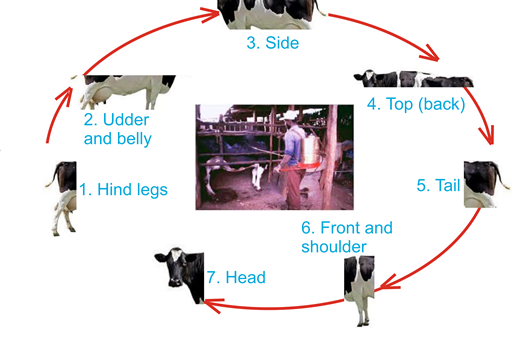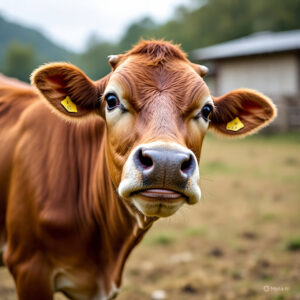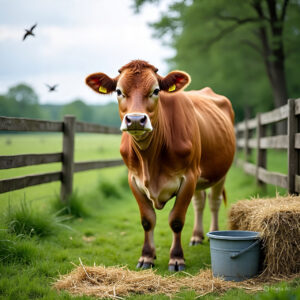Spraying insecticides for cows is an essential practice for every livestock owner. Pests like flies, mosquitoes, ticks, and lice can cause discomfort to cows and negatively affect milk production. Therefore, timely and proper spraying is important for maintaining a healthy and productive cowshed.
Maintaining cleanliness in the cowshed is crucial in animal husbandry. Among the essential tasks, spraying insecticides for cows at the right time helps prevent health issues. The presence of flies, ticks, or mosquitoes in the cowshed can directly impact the cow’s health.
🕒 Best Time for Spraying
- Spray in the early morning or evening hours.
- Ensure cows are not in the shed during spraying.
- Spray every 10 to 15 days for effective results.
🧴 Recommended Insecticides
- Cypermethrin
- Deltamethrin
These insecticides help control mosquitoes and ticks effectively.
🧼 How to Spray Properly
- Clean and dry the cowshed thoroughly before spraying.
- Mix the insecticide in water as per instructions and use a spraying machine.
- Always wear a face mask and gloves while spraying.
- Bring cows back into the shed only after 4–5 hours post spraying.
🌿 Natural Alternatives
If you prefer organic methods, you can use a mixture of eucalyptus oil or a combination of cow urine and turmeric extract as a natural spray. These are safe and eco-friendly options.
✅ Precautions Before Spraying
- Consult a veterinarian before using any new product, as some chemicals may have adverse effects.
- Check expiry dates of insecticides before purchasing.
- Measure correctly – Using more or less than the recommended dose can reduce effectiveness or cause harm.
⚠️ Side Effects of Incorrect Spraying
- Skin irritation in cows
- Risk of insecticide traces in milk
- Discomfort in animals and reduced milk yield
👉 Hence, proper spacing and safety precautions are a must during spraying.
💡 Post-Spray Care
- Do not allow animals into the shed for 4–5 hours after spraying.
- Avoid spraying on the udder of the cow to prevent contamination.
- Ensure proper ventilation before letting animals back into the shed.
🛑 Mistakes to Avoid While Spraying
- Spraying while cows are inside the shed
- Using excessive quantities of insecticide
- Using unclean water to mix the spray
- Spraying during the peak heat of the day (afternoon)
📌 Eco-Friendly & Organic Options
- Cow Urine-Based Spray: A mix of cow urine, turmeric, and eucalyptus oil acts as a natural repellent.
- Neem Extract: A decoction made from neem leaves helps repel flies and mosquitoes.
- Fly Traps: Use light-attracting traps in the shed to reduce the need for frequent spraying.
📊 Keep a Spraying Log
Record the date of spraying, insecticide name, and quantity used each time.
Maintaining such logs helps in timely control and diagnosing problems if any side effects occur.




